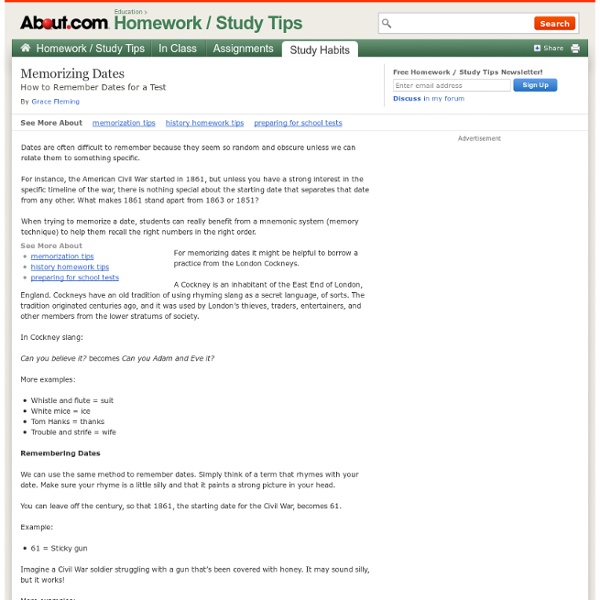Memorizing Dates - How To Remember Dates For A Test

Using Pattern Recognition to Enhance Memory and Creativity - Maria Popova
"If seven friends in turn rapidly told him their phone numbers, he could calmly wait until the last digit was spoken and then, from memory, key all seven friends' numbers into his phone's contact list without error." It seems to be the season for fascinating meditations on consciousness, exploring such questions as what happens while we sleep, how complex cognition evolved, and why the world exists. Joining them and prior explorations of what it means to be human is The Ravenous Brain: How the New Science of Consciousness Explains Our Insatiable Search for Meaning (public library) by Cambridge neuroscientist Daniel Bor in which, among other things, he sheds light on how our species' penchant for pattern-recognition is essential to consciousness and our entire experience of life. To illustrate the power of chunking, Bor gives an astounding example of how one man was able to use this mental mechanism in greatly expanding the capacity of his working memory.
Enhancing learning using sensory specific words
Everyone uses their senses to learn. Most people have an unconscious successful strategy for learning that is triggered when the information is presented in a preferred way. Teachers normally cover the different learning styles by telling, showing and then getting a pupil to experience what they need to learn. This can work while the student can experience what they need to learn. Some schools go so far as to teach students in groups labelling them as visual, auditory or kinaesthetic learners. At the same time many teachers miss out on stimulating the inner world where the students make their meaning of what is being taught. I use this technique in science lessons in the form of guided multi-sensory experiences: With a year 7 group I taught them photosynthesis. With the same group while teaching about predators and prey: “Notice the grass brushing across your fur , as you lie their hidden looking out across the plain.
Related:
Related:



